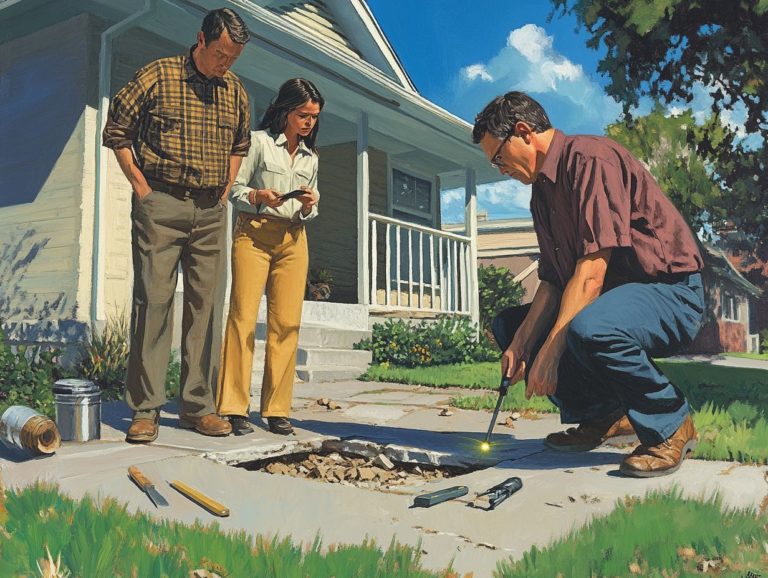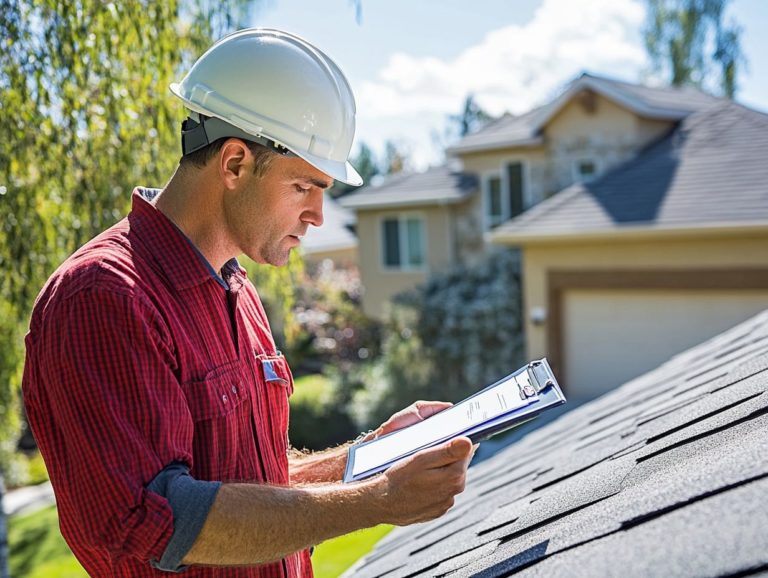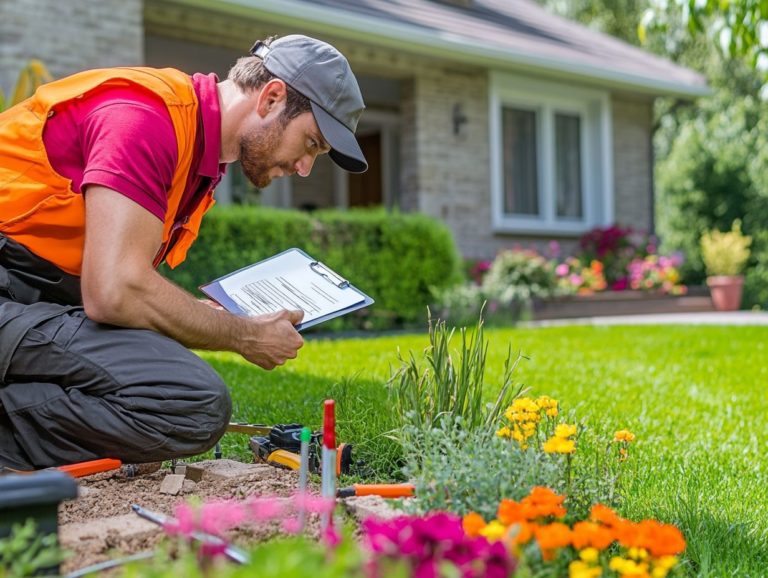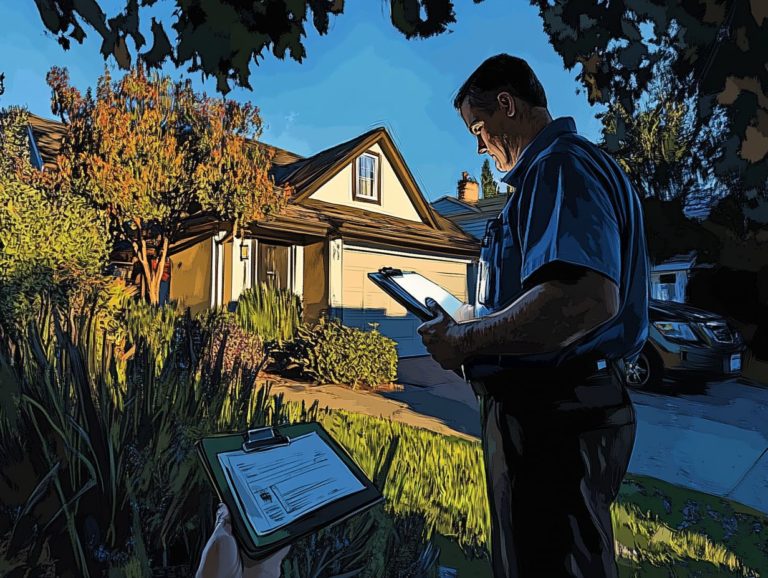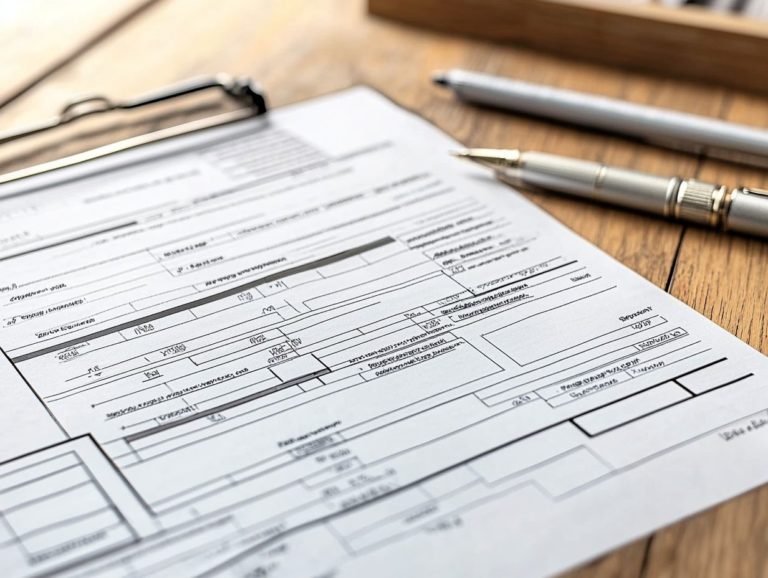Exploring the Home Inspection Industry
When you’re navigating the world of buying or selling a home, grasping the nuances of a home inspection can truly make a world of difference.
This article unravels the purpose and process behind home inspections, emphasizing their crucial role for both buyers and sellers. You ll gain insight into what to expect during an inspection, common issues that might arise, and strategies for effectively negotiating repairs afterward.
You ll also find tips on choosing the right inspector and understanding the associated costs. Get ready to take control of your real estate journey and make informed decisions every step of the way!
Contents
- Key Takeaways:
- What is a Home Inspection?
- Why Home Inspections are Important
- What to Expect During a Home Inspection
- Choosing a Home Inspector
- Cost of a Home Inspection
- Common Issues Found During Home Inspections
- Negotiating After a Home Inspection
- Frequently Asked Questions
- What is the purpose of exploring the home inspection industry?
- What does a home inspector really do?
- How can I kick-start my career in home inspection?
- Is there a demand for home inspectors in the industry?
- What are some potential career opportunities in the home inspection industry?
- How can I learn more about the home inspection industry?
Key Takeaways:
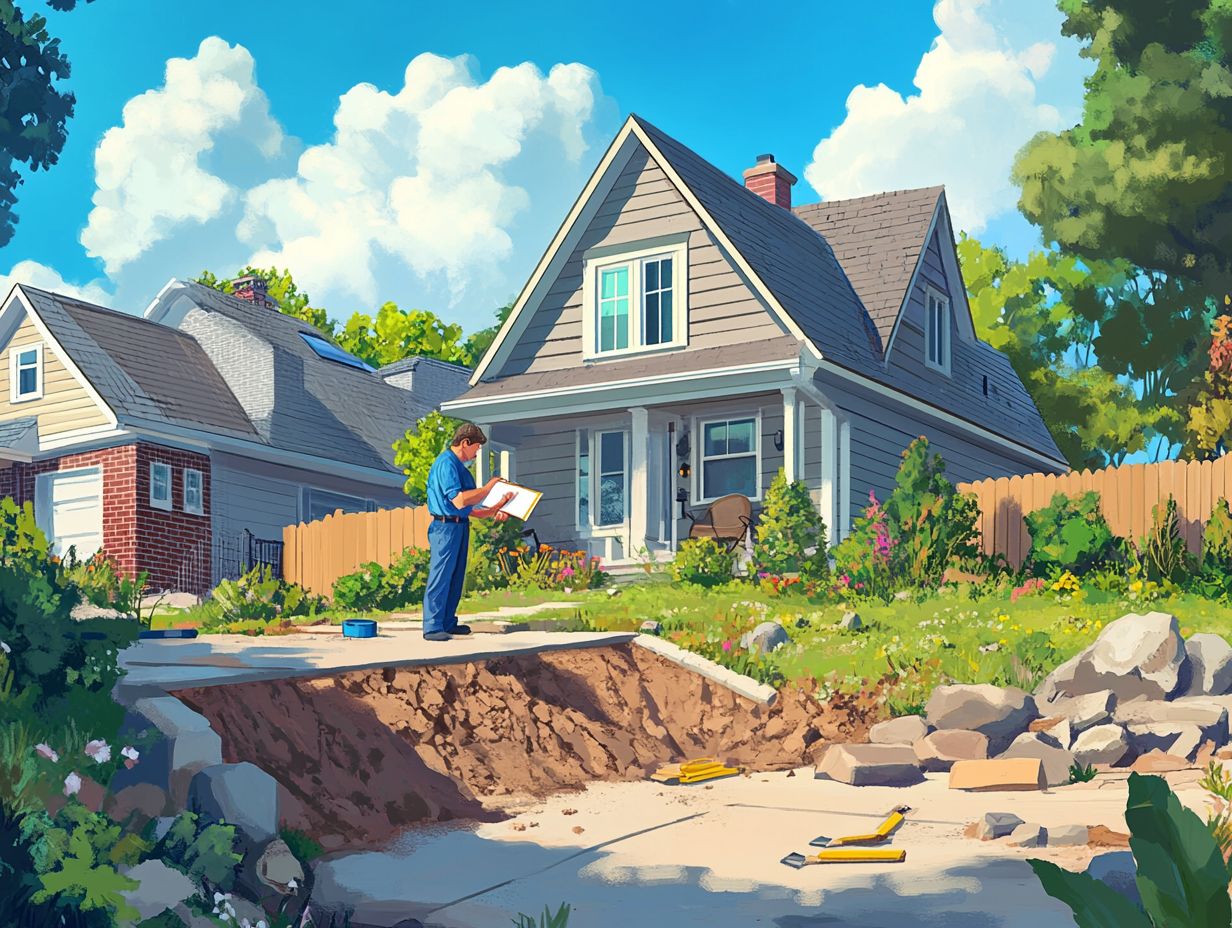
Home inspections are essential in the buying and selling process, providing valuable information about the condition of a property.
Investing in a professional home inspection can save buyers and sellers time and money in the long run, as well as provide peace of mind.
When choosing a home inspector, look for qualifications and credentials such as licenses and certifications. Don’t solely base your decision on cost.
What is a Home Inspection?
A home inspection is a comprehensive evaluation of a residential property, designed to assess its condition and uncover any potential issues that could impact its value or safety.
In today s housing market, where buyers are increasingly seeking reassurance before committing to significant investments, this process becomes even more crucial.
The inspection entails a meticulous review of the property’s structural and mechanical systems, enabling you to make informed decisions about your potential new home.
The Purpose and Process
The primary purpose of a home inspection is to equip you, whether you’re a buyer or seller, with a clear understanding of the home’s state before finalizing a real estate transaction.
This process starts with meticulous preparation, where the inspector collaborates with the seller to ensure that every corner of the home is accessible.
During the inspection itself, they carefully scrutinize various components think roof, plumbing, electrical systems, and foundation while on the lookout for any potential issues that may need addressing.
Once the inspection wraps up, you receive a detailed report that outlines the findings and recommends any necessary repairs or further evaluations.
This process proves invaluable for both buyers and sellers, helping everyone negotiate better and feel more secure.
For an even more thorough assessment, ancillary services like termite inspections and radon testing can be included. These are additional checks that assess specific risks in your potential new home, ensuring that every aspect is taken into account.
Why Home Inspections are Important
Home inspections play a vital role for both homebuyers and sellers, offering essential insights into the property’s condition.
These evaluations can directly influence mortgage rates and the broader housing market, fostering consumer confidence during real estate transactions.
Understanding the state of a property can enable you to make informed decisions, whether you re buying or selling, ultimately shaping your experience in the marketplace.
Benefits for Buyers and Sellers
Home inspections present a wealth of advantages for both buyers and sellers, enhancing the negotiation process and potentially saving you money in real estate transactions.
For buyers, a comprehensive inspection can uncover hidden defects that might escape your notice at first glance. This enables you to make informed decisions and, when necessary, leverage the findings during negotiations to your benefit.
Conversely, sellers stand to gain significantly as well. By proactively addressing any issues before they arise, you not only elevate the property’s overall value but also streamline the sales process, alleviating buyer concerns ahead of time.
This proactive strategy can pave the way for a smoother closing and more favorable terms for everyone involved, underscoring the importance of home inspections in your real estate journey.
What to Expect During a Home Inspection
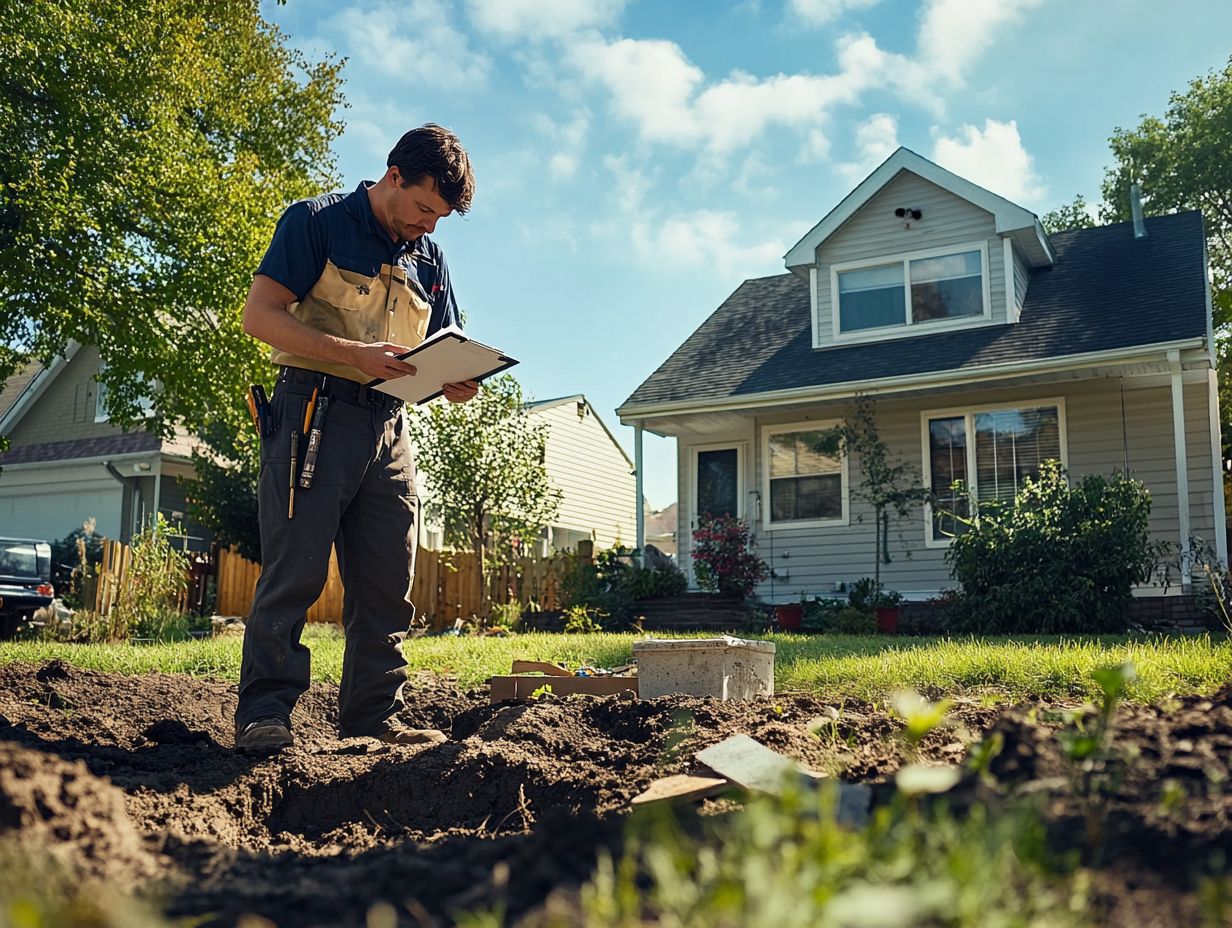
During a home inspection, you can anticipate a meticulous evaluation of the property’s key components and common areas.
This includes a detailed examination of the roof, plumbing, electrical systems, and structural integrity elements critical to ensuring the safety and functionality of your future home.
Common Areas and Components Inspected
When you consider a home inspection, think about the common areas and components that are crucial for evaluating the property s overall integrity.
You’ll want to pay attention to the roof, foundation, heating and cooling systems, plumbing, electrical systems, and major appliances.
The roof’s condition can reveal potential leaks or structural weaknesses that could lead to costly repairs down the line. Inspectors carefully examine the foundation for cracks or shifts that might indicate serious settling issues you wouldn t want to overlook.
The heating and cooling systems are assessed for both efficiency and safety. Equipment that doesn’t work properly can increase your energy bills and pose health risks.
Plumbing is another critical area, where leaks or outdated fixtures could hint at deeper problems. Meanwhile, the electrical systems are looked at for safety hazards that could put your home at risk.
Major appliances are evaluated for functionality, as failing appliances can disrupt your daily life. Each of these components plays a vital role in the overall safety and longevity of your home.
A thorough inspection can save you money and headaches later. Don’t skip this step!
Choosing a Home Inspector
Selecting the right home inspector is crucial for securing a comprehensive evaluation of your potential investment.
As a discerning homebuyer, you should seek out inspectors who possess the appropriate qualifications and certifications, such as NRCIA and LeakFREE certification.
Check their reputation in the home inspection industry to ensure that you make an informed choice that safeguards your future, including understanding the role of home inspectors.
Qualifications and Credentials to Look For
When choosing a home inspector, it’s essential to carefully look at their qualifications and credentials. Consider those who have a solid grasp of understanding the basics of home inspections and relevant certifications from professional associations that ensure they adhere to industry standards and ethics.
Seek out inspectors who hold a license specific to your state, as many regions require this for practicing professionals. Those who have completed rigorous training programs typically exhibit a comprehensive understanding of building codes and safety standards.
Membership in reputable organizations, such as the American Society of Home Inspectors (ASHI) or the International Association of Certified Home Inspectors (InterNACHI), further underscores their dedication to ongoing education and professional development, as detailed in the role of a home inspector.
The certification process is crucial as it generally involves extensive coursework, hands-on training, and passing challenging examinations. Together, these elements work to assure you of their reliability and trustworthiness in assessments.
Cost of a Home Inspection
The cost of a home inspection can fluctuate considerably, influenced by various factors such as the size and age of the property, the intricacies involved in the inspection process, and any additional services you might request, like radon testing or termite inspections.
Being aware of these variables will help you navigate the financial aspects with greater confidence.
Factors that Affect Pricing
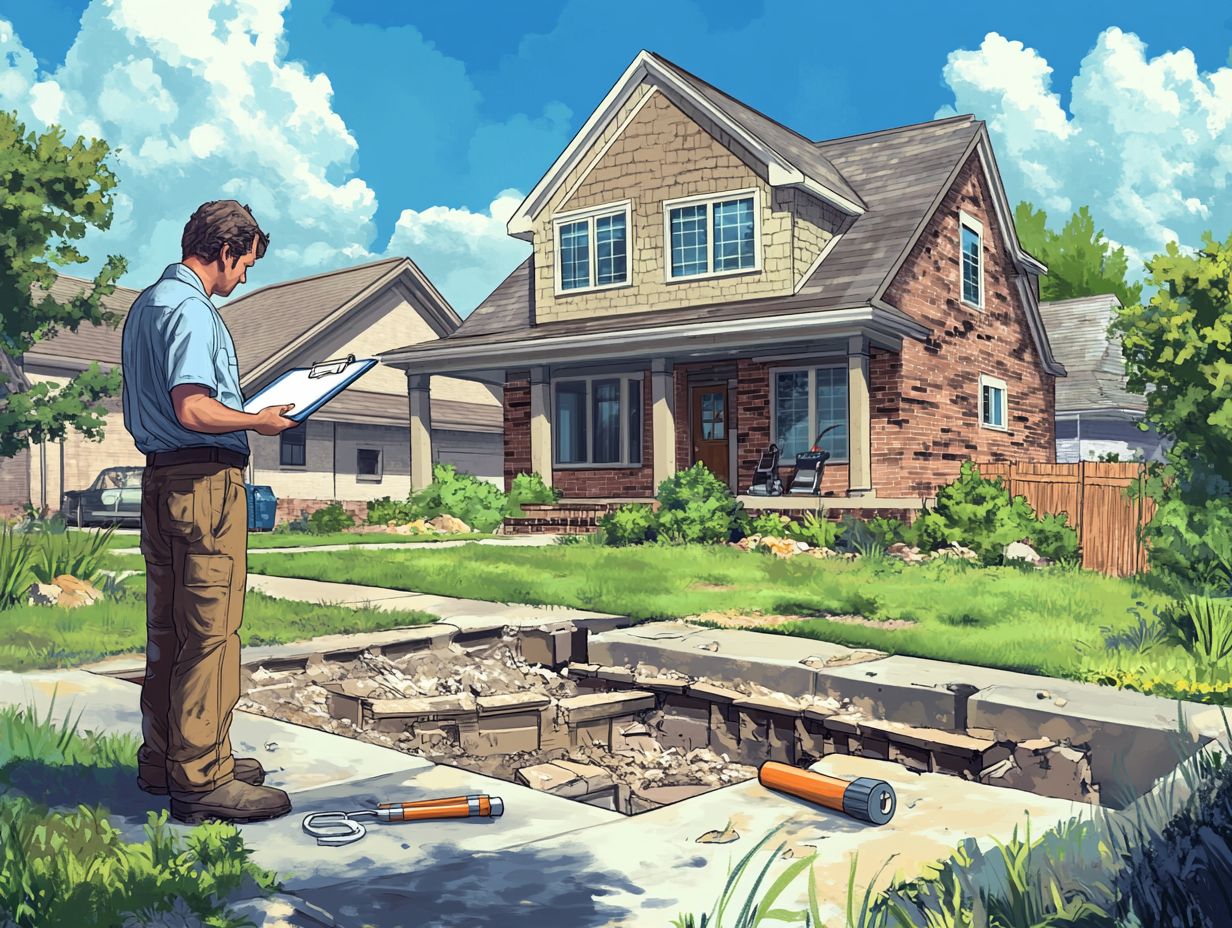
Several factors influence the pricing of home inspections, and it’s worth considering each one. Geographic location, the size of the home, and the specific services you request like maintenance inspections or additional services can all play a role.
In various markets, local demand for inspectors can sway prices, while differing regulations and standards may determine what s included in a basic inspection. For example, in urban areas where the cost of living is higher, you might encounter steeper prices due to increased competition and fluctuating overhead costs.
The type of property be it a single-family home, condominium, or multi-unit dwelling can significantly affect the complexity of the inspection, leading to different fee structures. Understanding these factors helps you budget wisely. Get ready to make informed choices!
Common Issues Found During Home Inspections
Home inspections frequently uncover prevalent issues that can greatly affect a property’s value and safety.
Problems like plumbing leaks, electrical malfunctions, and structural deficiencies are often revealed during these assessments. By identifying these issues early on, you enable yourself to make informed decisions as a homebuyer, ensuring your investment is both sound and secure.
Examples and Solutions
You may encounter common issues during a home inspection. These include roof leaks, outdated electrical systems, and pest infestations, each requiring specific solutions for the property’s long-term viability.
A leaking roof can lead to significant water damage and mold growth if not fixed quickly. An outdated electrical system poses safety risks and may fail to meet current codes. Pest infestations, especially termites, can weaken your home’s structure.
Prioritize fixing these issues before buying the home, or use them as leverage during negotiations either to secure a price reduction or compel the seller to make necessary repairs.
By proactively addressing these concerns, you can safeguard your investment and avoid costly repairs down the line!
Negotiating After a Home Inspection
Negotiating after a home inspection is a pivotal moment in the real estate transaction process. As a buyer, you may request repairs or concessions based on the inspection report. Meanwhile, sellers must skillfully navigate these requests to find a mutually agreeable solution.
How to Address and Resolve Issues
Addressing and resolving issues highlighted in the inspection report requires careful communication and negotiation with the sellers. Focus on constructive solutions that benefit both parties.
Understanding the inspection report is essential; it outlines potential problems along with remedies and implications for the property’s value and safety.
Create a prioritized list of concerns to express your expectations clearly during discussions. Sellers should also be ready to propose realistic solutions, whether repairs or price adjustments.
Ultimately, both parties should strive for compromises that ensure a fair deal, minimizing conflict and paving the way for a successful transaction.
Frequently Asked Questions
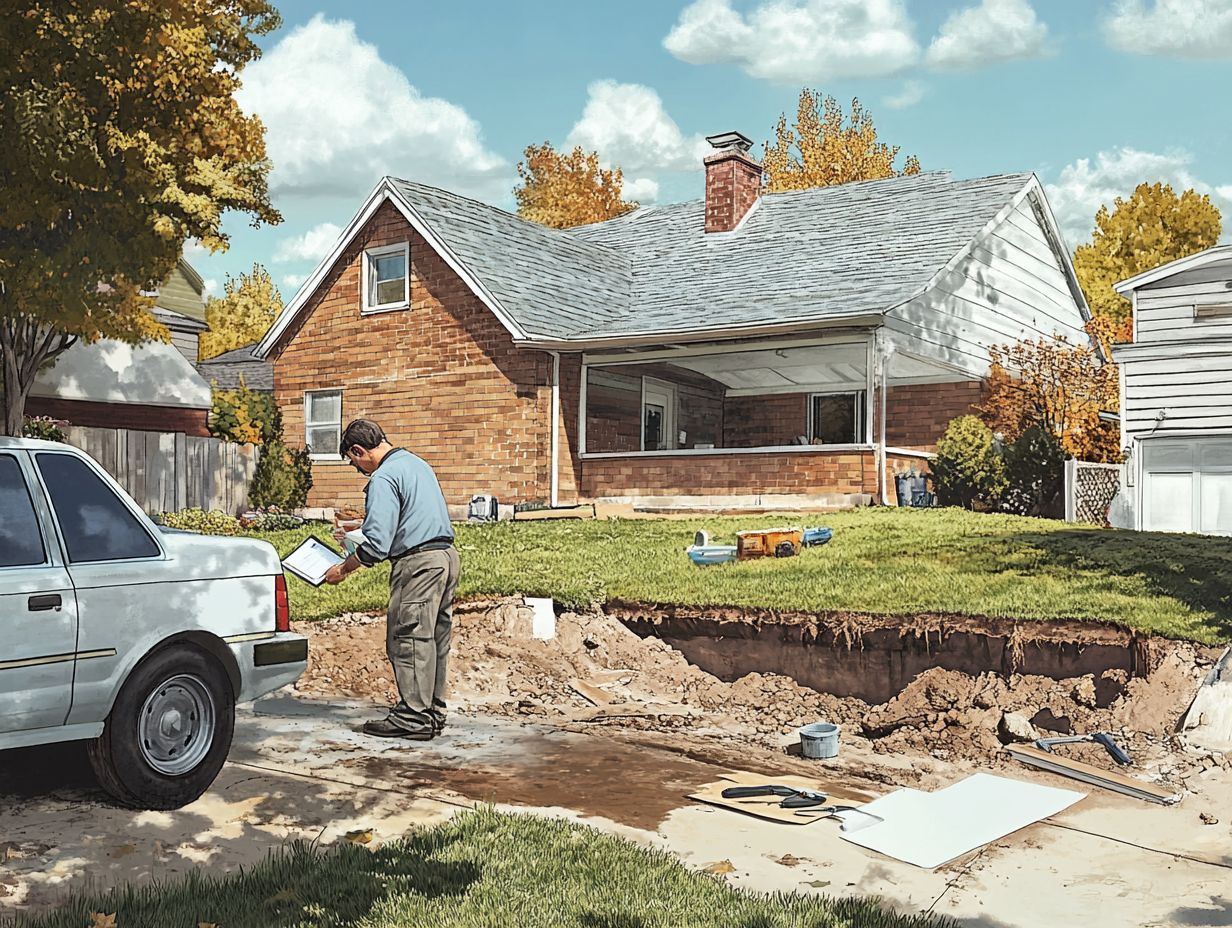
What is the purpose of exploring the home inspection industry?
The purpose of exploring the home inspection industry is to understand its services, qualifications, requirements, and to gain insights from industry experts about potential career opportunities.
What does a home inspector really do?
A home inspector is a trained professional who conducts a thorough examination of a property’s condition and identifies any potential issues or safety concerns. For a comprehensive overview, it’s helpful to understand the process of home inspections. They provide a detailed report for the client.
How can I kick-start my career in home inspection?
To become a home inspector, you typically need to complete a training program and pass a licensing exam. Some states may have additional requirements, such as completing a certain number of inspections or obtaining insurance.
Is there a demand for home inspectors in the industry?
Yes! There is a high demand for home inspectors as the real estate market continues to grow, and more buyers seek navigating the home inspection process before making a purchase.
What are some potential career opportunities in the home inspection industry?
Apart from working as an inspector for a company, you can also open your own home inspection business, work for insurance companies or government agencies, or become a consultant for real estate agents by staying informed about the future of home inspections.
How can I learn more about the home inspection industry?
Many resources are available to learn more about the home inspection industry, including online courses, workshops, and conferences. Additionally, you might explore the future of home inspections and consider reaching out to local home inspection associations for information and networking opportunities.
Start learning about home inspections today to protect your future home!

